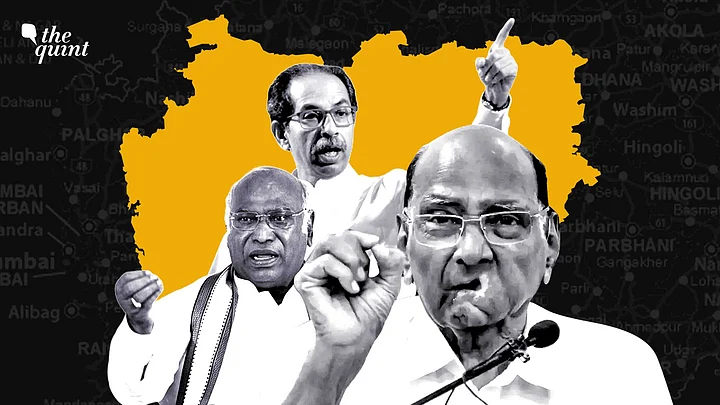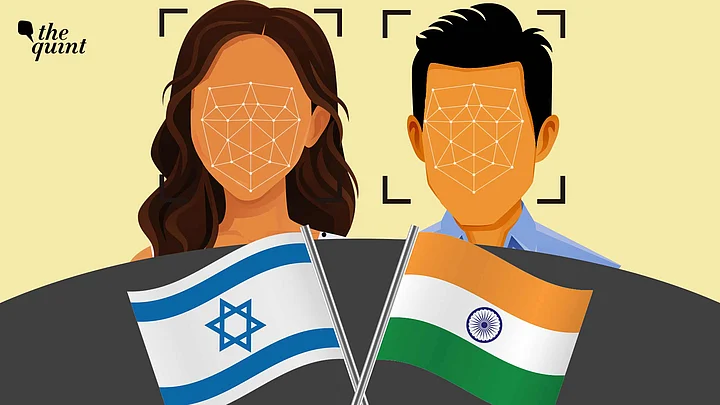The Declaration of Intent
Writing his column for The Indian Express, senior Congress leader P Chidambaram underscores the various aspects of Congress Party's manifesto, majorly its stance on Constitution, caste census, minorities, youth and jobs, women and federalism.
Taking a dig at the BJP, he writes, "A statement can also conceal the true intention of the maker. False prophets make false statements The statements that haunt Mr Narendra Modi are 'I shall put Rs 15 lakhs in the bank account of every Indian,' 'I shall create 2 crore jobs a year' and 'I shall double the farmers' incomes,' among others."
"The most-talked about issue is the BJP's authoritarianism. The BJP has undermined federalism and the Constitutional declaration that India is a Union of States. The theory of One Nation, One Election, One Government, One Party and One Leader. Congress' Manifesto has 12 points in a chapter on Federalism; does the BJP agree on any? The most far-reaching promise is to build a consensus on transferring some fields of legislation from the Concurrent List to the State List. BJP's credentials will be tested on these 12 points."P Chidambaram, The Indian Express
Post Ayodhya Euphoria, Will Govt Be Called to Account?
Former Diplomat and writer Pavan K Varma, in his column for The Asian Age argues that the over-reliance of Prime Minister Narendra Modi on the Ram Mandir campaign raises questions about the party's leadership dynamics.
He states that the strategy of polarising voters on religious grounds, their war cry against corruption are now losing conviction. Moreover, he adds that the over-reliance of the party's campaign on entirely one individual is "dangerous, and contrary to the previous culture of the BJP where there was always a collegial leadership," with leaders like LK Advani and MM Joshi, among others, working under Atal Behari Bajpayee's leadership.
"But there appears a nascent feeling that the BJP’s Hindutva narrative — supported by the Prime Minister’s unending temple darshans — is reaching saturation point. At some time, after the initial euphoria of the Ayodhya temple abates, voters will ask what the government is doing about issues like unemployment, prices, education, healthcare and rising inequality. There is a certain point up to which aastha can be used to deflect attention from legitimate issues of governance. Has that point been reached?"Pavan K Varma, The Asian Age
Corruption as an Election Issue
In her weekly 'Fifth Column' in The Indian Express, Tavleen Singh weighs in on the two words often iterated by Prime Minister Narendra Modi in his speeches — 'Bhrashtachar' (Corruption) and 'Parivarvaad' (Dynastic democracy). While she agrees that corruption has always been deeply-rooted in Indian politics, she disagrees with Prime Minister Narendra Modi on the impression that men and women in his own party are scrupulously honest when they are also tainted by corruption, this, he needs to look at more carefully.
What Modi has done is to give his investigative agencies the power to identify those he knows are corrupt and chuck them into jail. The law that has made 'money laundering; into a non-bailable offence is something that he has been directly responsible for. Sadly, this has been a selective exercise. What Modi has not done is to ensure that the agencies charged with catching corrupt politicians and officials are not just impartial and honest, but seen to be so. The men seeking to oust him from power have noticed this and made a huge racket about what is now sneeringly called the 'BJP washing machine.'Tavleen Singh, The Indian Express
Dalit History Month, and the Perils of Mimicking the West
In this column for The Times of India, filmmaker and critic Rajesh Rajamani argues that Dalit history month which impersonates the American Black history month "does more damage than good to anti-caste history."
He takes our attention to writers being sought out this month by media houses to write sob stories and how in a way, Dalit history month is similar to Zara's annual sale where the works of Dalit writers are sold at an irresistible discount. "One just has to look around and witness the multiple listicles titled ‘10 Dalit writers to follow on Instagram’ or the ‘5 Dalit women writers who smashed caste and patriarchy at Jaipur Literature Festival’ floating around the internet," he writes.
"And importantly, we have to acknowledge that this month-long fanfare will involve the strengthening of narratives from those scheduled castes that are relatively larger in population and have had better access to opportunities through reservation. A Dalit community that plays a musical instrument or is involved in agriculture can proudly claim its history of being artists or agriculturists. But the same privilege is not available to those associated with stigmatised and dehumanising occupations. They are expected to just sit and stare. And their cooperation can be thanked later."Rajesh Rajamani, The Times of India
Madhav Says No Vacancy at Top; Vadra’s Curious Pitch for Amethi
In this piece for The Asian Age, journalist Anita Katyal writes about how the recent remarks by Robert Vadra, pitching himself as the perfect candidate for Amethi Lok Sabha constituency has confused and intrigued the party. Further, she writes about Ram Madhav, India Foundation president and an RSS member giving evasive answers when asked about who among the current crop of young leaders have the potential to occupy the country's top posts, this, while Congress leaders came down on his at his response.
"With the Congress top brass failing to clarify matters, party leaders are left wondering if Mr Vadra has been asked by the Gandhi family to project himself through his public pronouncements, or is he doing so on his own accord? This will remain a subject of animated discussion and speculation in the Congress till the party announces its candidates for the Amethi and Rae Bareli seats."Anita Katyal, The Asian Age
SC Should Stop Curative Plea Ping Pong
In his 'Swaminomics' column in The Times of India, Swaminathan S Anklesaria Aiyar draws a parallel between cricket and Supreme Court in terms of the idea of limited appeals.
Elaborating, he writes about the commercial dispute between Delhi Airport Metro Express Pvt Limited (promoted by Anil Ambani's Reliance) and Delhi metro Rail Corporation and how through the 'curative petitions' in this case, the court has laid down a "sad precedent."
"Is this a game of ping pong? Whatever the merits of the case, clearly learned judges were split on the issue. The arbitration tribunal, a high court bench, and a SC one had ruled in favour of Reliance. A bigger high court bench, and the latest SC bench ruled in favour of the DMRC. When judicial views are so split, is something as exceptional as a curative petition justified? What is true justice in this case is hotly disputed, as are some decisions in cricket. But should not the appeal process end reasonably fast? Judges often say, “Justice delayed is justice denied”. Having made that learned remark, they continue with procedures and processes that make cases a lengthy nightmare in which only lawyers benefit."Swaminathan S Anklesaria Aiyar, The Times of India
Manifesto Promises To Make Parliament Work
Weighing in on the Congress' manifesto, journalist Karan Thapar writes in the Hindustan Times on 'Defending the Constitution' clause wherein the party has stated the two Parliament Houses will meet for 100 days in a year, the promise to devote one day in a week to discussing agendas suggested by the Opposition in each House, among others.
Thapar argues that Congress' manifesto should have also promised to institute the House of Commons' practice of PM's Question Time which would ensure accountability.
"But even what the Congress has promised needs to be delivered. For the good of our Parliament, our democracy and, beyond that, good governance. This is, therefore, a test for Narendra Modi and the BJP. If they really believe India is the mother of democracy how can they possibly say no? In fact, I would hope every thoughtful serious political party would endorse these proposals. Alas, there’s a sad and deeper truth. If questioned, I’m sure every party will say aye. But if elected and in a position to act, will they? That’s where doubts creep in."Karan Thapar, Hindustan Times
Poll Passions on the Big Screen
Film Critic Namrata Joshi, in her column in The New Indian Express takes us through a journey of narratives around elections and politics in Hindi cinema in the past and contemporary times. While she cites the examples of Jawan (2023), Raees (2017), Sarkar (2018) of Tamil Cinema, Unda (2019) of Malayalam cinema, she also talks about how Gulzar remains a rare filmmaker who consistently engaged with electoral issues right from his debut feature Mere Apne (1971) to Hu Tu Tu (1999).
Further, Joshi writes how Gulzar created a stir in 1975 with Aandhi which was supposedly based on the life of the then Odisha Chief Minister Nandini Satpathy:
"The most significant aspect of the film is its satirical, cynical election song, ‘Salaam keejiye aali janaab aaye hain, ye paanch saalon ka dene hisaab aaye hain’, that talks about the five-yearly accountability of politicians. Gulzar’s sharp words focus on how politicians buy votes by doling out an essential like food and hide the naked destitute in shrouds. He then has the electorate declare it won’t vote needlessly but based on what the candidates have achieved."Namrata Joshi, The New Indian Express
Fear of Love and Loving in India
In this piece for the Deccan Herald, Sarasu Esther Thomas, a law professor, writes about how the sanctity of a marriage gives no protection to couples in inter-faith and inter-caste marriages in India and the slew of 'anti-conversion' legislation in different states which restrict rights of inter-faith couples to marry and to regulate live-in relationships.
"India is leaning heavily towards prohibiting interfaith marriages — an ominous sign in a secular nation," she writes.
"It is unthinkable that marriages and live-in relationships between adults should become so regimented by the State. This is a violation of constitutional and human rights to have adult agency appropriated by the state and non-state actors. This insidious creeping of the paternalistic State into romantic and intimate relationships of consenting adults does not show any signs of ebbing. It reflects increased polarisation and merges moral policing with the law."Sarasu Esther Thomas, Deccan Herald
More From The Quint:
(At The Quint, we are answerable only to our audience. Play an active role in shaping our journalism by becoming a member. Because the truth is worth it.)






